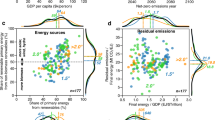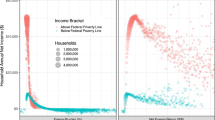Abstract
DR. RUSSELL'S suggestion (NATURE, Feb. 4, p. 170) that the kilowatt-hours the best unit of energy for practical purposes, ought to be popular with the gas companies. At present, by Act of Parliament, we have to purchase our energy from the public supply companies by two different measures, and the cheaper purveyor does not get full credit for his cheapness. The unit for electricity is of course the kilowatt-hour 3.6×106joules ; the unit for gas energy is the therm—the energy required to heat 1000 lb. of water through 100° F., and this is 105 × 106 joules. Thus the therm is approximately 29 kilowatt-hours. In other words, when the price of gas per therm is the same as the price of electricity per kilowatt-hour, electrical energy is 29 times as dear as gas energy.
This is a preview of subscription content, access via your institution
Access options
Subscribe to this journal
Receive 51 print issues and online access
$199.00 per year
only $3.90 per issue
Buy this article
- Purchase on Springer Link
- Instant access to full article PDF
Prices may be subject to local taxes which are calculated during checkout
Similar content being viewed by others
Author information
Authors and Affiliations
Rights and permissions
About this article
Cite this article
WHIPPLE, F. Units of Energy. Nature 121, 355–356 (1928). https://doi.org/10.1038/121355b0
Issue Date:
DOI: https://doi.org/10.1038/121355b0
Comments
By submitting a comment you agree to abide by our Terms and Community Guidelines. If you find something abusive or that does not comply with our terms or guidelines please flag it as inappropriate.



